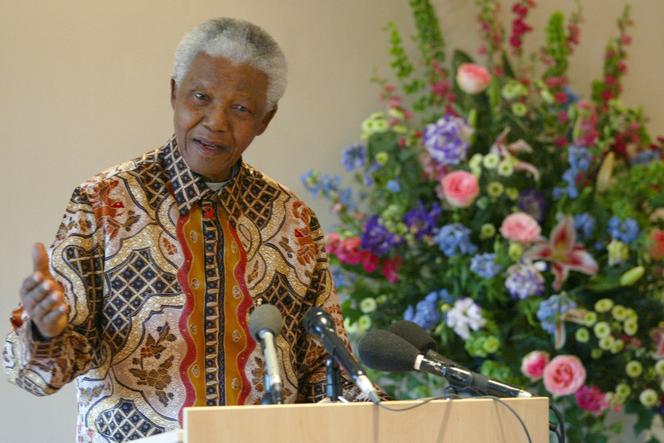


Anyone who wants to buy a piece of Nelson Mandela's legacy will soon be able to do just that. Whether it's one of his iconic XL-size floral shirts, a pair of his black leather shoes to pretend to follow in the footsteps of the former Nobel Peace Prize winner or even the hearing aid he extolled during a speech in 1997, all these items will be for sale. The auction organized for February 22 by the New York auction house Guernsey's hopes to proceed smoothly, unlike a previous attempt in 2022 that faced obstacles.
At the time, the South African Heritage Resources Agency (SAHRA) succeeded in suspending the sale of 29 objects entrusted to Guernsey's by Makaziwe Mandela, one of the former president's daughters. Then as now, the agency is contesting the export of the objects, whose heritage value has not been assessed by the agency and which were taken out of the country without the necessary authorizations. However, in November 2023, a South African court ruled in favor of Makaziwe Mandela. SAHRA appealed the decision on December 28, but in the meantime, the new sale is scheduled for the end of February and now includes around 100 items.
While the most controversial item in the previous catalog was withdrawn – a key to the Robben Island prison where Nelson Mandela spent 18 of his 27 years in prison – a new artifact is causing controversy: his passport issued in 1993. "Many people have expressed surprise at seeing an identity document being sold. It's not just any document, it's President Mandela's," said Ben Mwasinga, SAHRA's heritage protection officer. "You can sell what you want but not the identity!" said Vusani Nkosi, Nelson Mandela's former private chef. "In our culture, our identity is who we are. If I take away your identity card, I also take away your identity," said the chef.
"It goes without saying that this object requires the protection afforded by South African law," said Verne Harris, director of the Nelson Mandela Foundation. The institution does not comment on the value of the other items on sale. Harris recalled that "Madiba had no objection in principle to the sale of his personal items to raise funds for good causes. On the contrary, he even donated items on several occasions for this purpose."
The difficulty lies in distinguishing heritage objects from personal items. In the auction catalog, many objects are part of South African heritage "because they were given to him [Nelson Mandela] due to the role he played in the struggle for liberation in South Africa," said Vuyani Booi, director of the Nelson Mandela Museum in Mthatha, in the Eastern Cape province. The fight against the apartheid regime (1948-1994) was a national struggle, so "South Africans received these gifts through him," said the curator.
You have 55% of this article left to read. The rest is for subscribers only.
